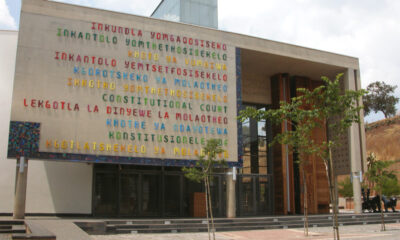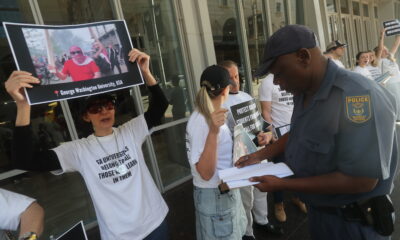
Israel

BDS is a very real threat to Israel
ROGER COHEN
The BDS Threat
A version of this op-ed appears in print on February 11, 2014, in The International New York Times and has attracted over 300 most interesting comments. This column is published verbatim and can be read here or on the NYT by clicking the link above
LONDON — Secretary of State John Kerry caused outrage in Israel recently when he declared: “For Israel there’s an increasing delegitimization campaign that has been building up. People are very sensitive to it. There is talk of boycotts and other kinds of things. Today’s status quo absolutely, to a certainty, I promise you 100 percent, cannot be maintained. It’s not sustainable. It’s illusionary.”
Members of the Israeli government were indignant. Israel, they declared, will not negotiate under pressure. Advice givers, stay away! But Kerry was only repeating what Israel’s own finance minister, Yair Lapid, had already said: The Boycott, Divestment and Sanctions (B.D.S.) movement is beginning to bite.
I am a strong supporter of a two-state peace. The messianic idea of Greater Israel, occupying all the land between the Mediterranean and the Jordan River, must wither. Jews, having suffered for most of their history as a minority, cannot, as a majority now in their state, keep their boots on the heads of the Palestinians in the occupied West Bank any longer.
Palestinians must accept the permanence of the state of Israel within the 1967 lines with equitable land swaps. Competitive victimhood should cede to collaborative viability for the nation states of the Jewish and Palestinian peoples. Narratives and revealed truth do not a future make. They perpetuate the imprisoning past.
“I don’t trust the BDS movement”
So, in theory, B.D.S. might be a positive factor. When the largest Dutch pension fund and the largest Danish bank withdraw investments from, or cease business with, Israeli banks because of their operations in the settlements, they send a powerful signal to Israel to get out of the West Bank.
Yet these developments make me uneasy for a simple reason: I do not trust the B.D.S. movement. Its stated aim is to end the occupation, secure “full equality” for Arab-Palestinian citizens of Israel, and fight for the right of return of all Palestinian refugees. The first objective is essential to Israel’s future. The second is laudable. The third, combined with the second, equals the end of Israel as a Jewish state. This is the hidden agenda of B.D.S., its unacceptable subterfuge: beguile, disguise and suffocate.
 The anti-Apartheid movement in South Africa contained no such ambiguity. As Diana Shaw Clark, an activist on behalf of a two-state solution, wrote to me in an email, “People affiliated with divestment in South Africa had no agenda other than the liberation and enfranchisement of an oppressed majority.”
The anti-Apartheid movement in South Africa contained no such ambiguity. As Diana Shaw Clark, an activist on behalf of a two-state solution, wrote to me in an email, “People affiliated with divestment in South Africa had no agenda other than the liberation and enfranchisement of an oppressed majority.”
This is not the case in Israel, where the triple objective of B.D.S. would, in Clark’s words, “doom Israel as a national home for the Jews.” Mellifluous talk of democracy and rights and justice masks the B.D.S. objective that is nothing other than the end of the Jewish state for which the United Nations gave an unambiguous mandate in 1947. The movement’s anti-Zionism can easily be a cover for anti-Semitism.
It would be gratifying if Israelis and Palestinians could learn overnight to live together as equal citizens in some United States of the Holy Land between the Mediterranean and the Jordan River, a binational and democratic secular state that resolves their differences. But it is an illusion to think this could ever happen, the one-state pipe dream. The fault lines are too deep. A single state cannot mark its Day of Independence and Day of Catastrophe on the same date.
Trust your neighbor? Been there, tried that.
One state, however conceived, equals the end of Israel as a Jewish state, the core of the Zionist idea. Jews must not allow this to happen. Trust your neighbor? Been there, tried that.
The so-called right of return of the hundreds of thousands of Palestinians driven out in the 1948 war (whose descendants now number in the millions) cannot be exercised, any more than the Jews of Baghdad and Cairo have deeds to return home. There can, and should be, agreed compensation for the dispossessed, but there cannot be a reversal of history. The “right” is in fact a claim.
A Jewish national home is needed. History demonstrated that. It must now be reinvented. For that, the corrosive occupation has to end and with it the settlement industry.
B.D.S. is a wake-up call. I oppose it because I do not trust it. That does not mean, as Lapid intimated, that Israel can ignore its message.
Israel can only be a state of laws again when the lawless enterprise beyond the Green Line ends. West of that line, Israel is a democracy affording greater minority rights than other regional states (Omar Barghouti, a B.D.S. leader, has a master’s degree from Tel Aviv University). But that is not enough. All citizens should enjoy equality in the Jews’ national home, a state where civil marriage becomes possible, state and synagogue are divorced, and Israelis are permitted to identify themselves as Israelis if they so wish, rather than as Jews or Arabs or Druze — that is as undifferentiated citizens.
- Roger Cohen joined The New York Times in 1990. He was a foreign correspondent for more than a decade before becoming acting foreign editor on Sept. 11, 2001, and foreign editor six months later. Since 2004, he has written a column for The Times-owned International Herald Tribune, first for the news pages and then, since 2007, for the Op-Ed page. In 2009 he was named a columnist of The New York Times. Mr. Cohen has written “Hearts Grown Brutal: Sagas of Sarajevo” (Random House, 1998), an account of the wars of Yugoslavia’s destruction, and “Soldiers and Slaves: American POWs Trapped by the Nazis’ Final Gamble” (Alfred A. Knopf, 2005). He has also co-written a biography of General Norman Schwarzkopf, “In the Eye of the Storm” (Farrar Straus & Giroux, 1991).
SA COMMUNITY PROTESTS BECOME INCREASINGLY VIOLENT










